Prince Charles’s powerful plea to Rwanda: ‘The genocide must never happen again’
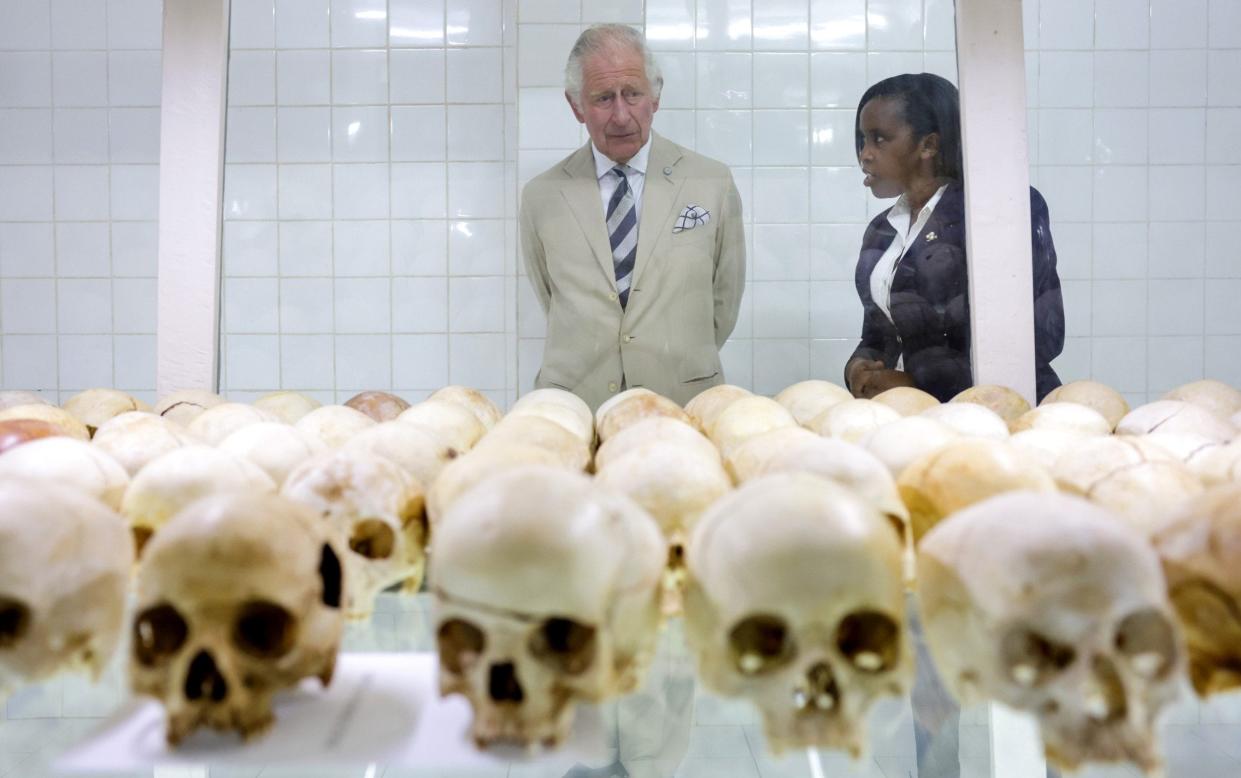
Like many children, four-year-old Ariane Umutoni’s favourite food was cake. Her favourite drink was milk and she loved singing and dancing.
She was killed during the 1994 Rwandan genocide by being stabbed in the eyes and head.
Francine Murengezi Ingabire, 12, who loved eggs and chips, was hacked to death by machete.
As the Prince of Wales and the Duchess of Cornwall toured the children’s room at the Kigali Genocide Memorial in Rwanda, they could not fail to have been deeply moved.
Pausing to look at the smiling young faces gazing from the memorial windows, they read about the children’s favourite things, typical childlike pastimes such as playing with their fathers, and dreams of becoming doctors, before the jarring reality of their deaths at the hands of ethnic Hutus was detailed below.
“Terrible,” said the Prince, while his wife added: “What humans can do to humans”.
For the Prince, who has a particular interest in genocide and reconciliation, the visit was an opportunity to “listen and learn”.
He later called for the world to learn from the atrocity, warning it must never happen again. He hopes to use the experience to “bring people grappling with similar issues” together, an aide said.
The Duchess, meanwhile, hugged survivor Uzamukunda Walida, who was gang-raped during the genocide.
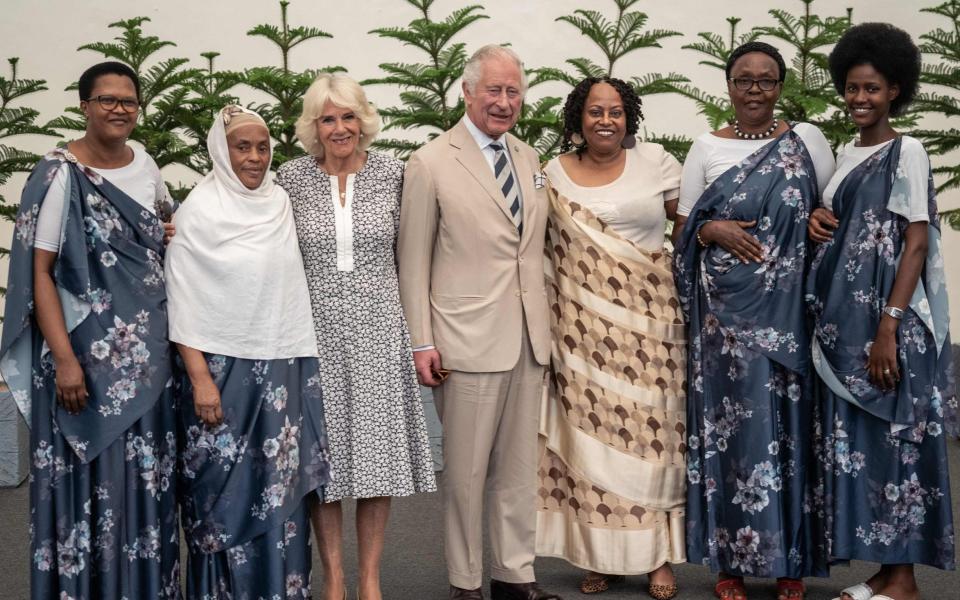
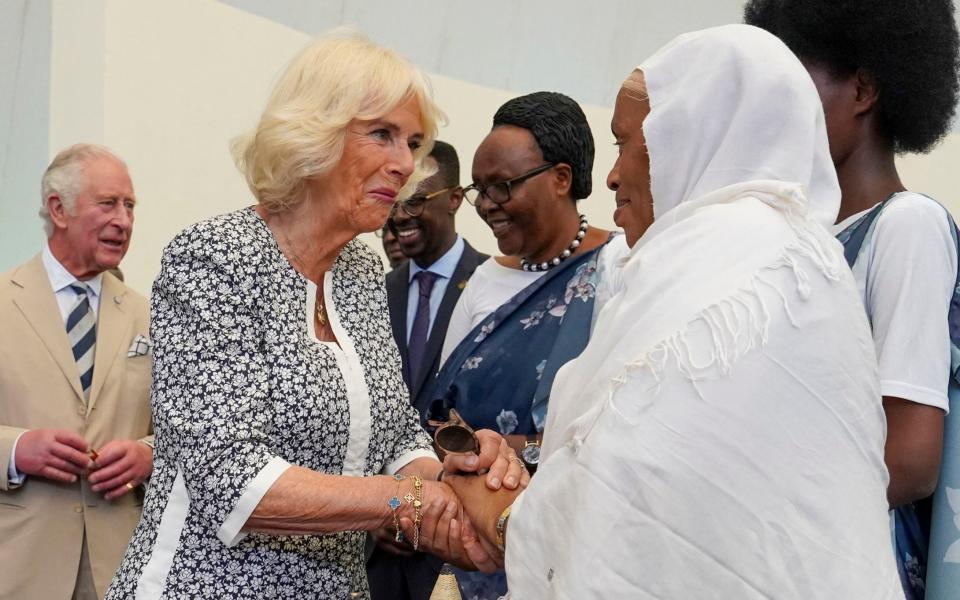
About one million members of the Tutsi community were killed by Hutu extremists during 100 days of state-sponsored slaughter between April and July 1994. Many were coerced to kill their friends and neighbours.
The Prince and the Duchess arrived in the Rwandan capital on Tuesday evening, the first members of the Royal family to visit Rwanda.
The genocide memorial was the first stop on a three-day visit that will culminate in the Commonwealth Heads of Government Meeting on Friday, where the Prince will outline his vision for the future evolution of the Commonwealth before holding a series of bilateral meetings, including a cup of tea with Boris Johnson.
At the genocide memorial, the Prince and the Duchess laid a wreath at a mass grave where 250,000 people are buried, their bodies collected from around Kigali, before a bugle’s haunting tune marked a moment of reflection under the beating sun.
The card attached to the flowers read: “In everlasting remembrance of those who died in the genocide against the Tutsi.” It was signed Charles and Camilla.
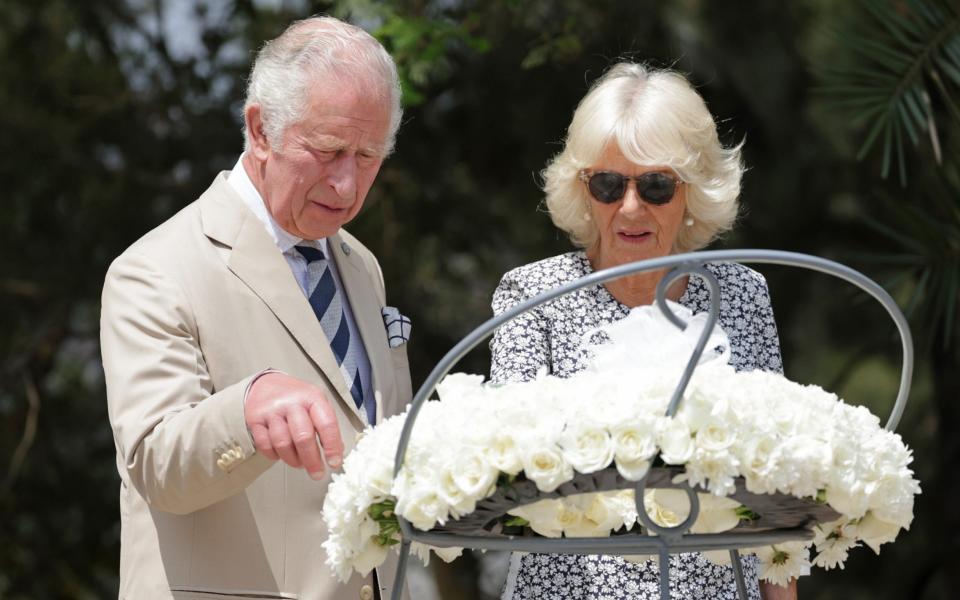

The Prince and Duchess had earlier spent several minutes looking around a room adorned with hundreds of photographs of those killed in the genocide.
They were joined by Freddy Mutanguha, another survivor who is now executive director of the Aegis Trust – a UK-based organisation working to prevent genocide worldwide – which manages the memorial.
He told them: “If I count my extended family, I lost 80 members.”
An incredulous Duchess repeated the number “80”.
Mr Mutanguha described how he still hears the “voices” in his nightmares of the people who attacked his mother.
The next room featured the muddy, torn clothing of child victims, many with bullet holes ripped through them.
A well-worn pair of children’s shoes, jewellery, keys and Superman bedding were among items recovered from the victims; a sobering reminder of how normal lives were cut short.
Another room featured row upon row of skulls and bones.
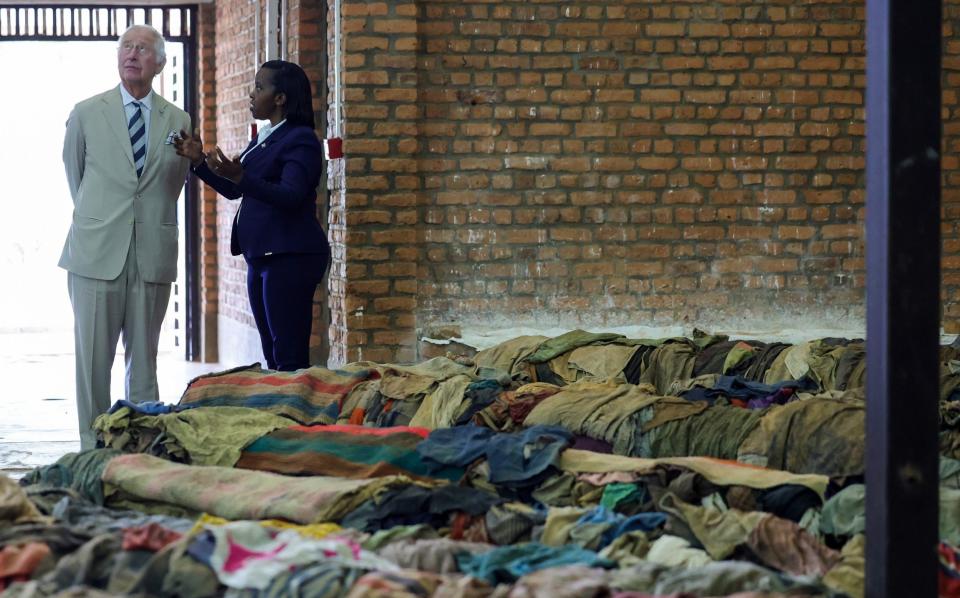
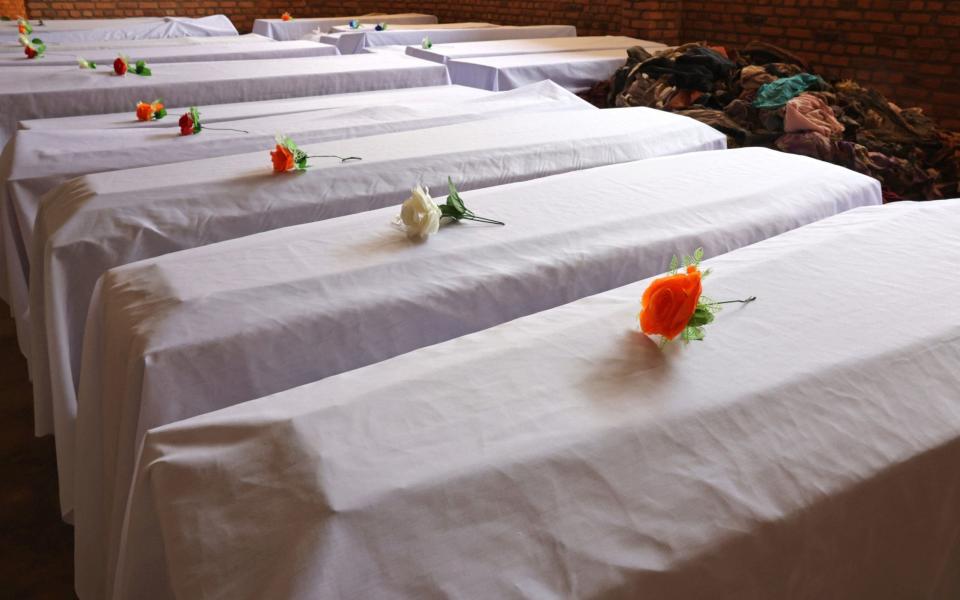
Ahead of the visit, the Prince is understood to have watched a short video shown to visitors in which survivors describe how they watched their parents killed, hid or played dead in a desperate fight for their lives.
The long-lasting effects were clear. Many said the memorial was the only place they could feel close to their loved ones, while a majority of the young population is said to struggle with issues relating to their identity.
Mr Mutanguha, said after the visit: “It’s really comforting seeing Prince Charles and the Duchess of Cornwall paying respect to the victims of genocide. And this is a very huge sign for us because it’s a message to the world – never again – the fact that this happened shouldn’t happen anywhere in the world.
“We know that he has a strong voice that may help to silence denials of genocide.”
The Prince later visited a memorial at Nyamata Church, where 10,000 people were killed in just two days.
He was shown huge piles of victims’ clothes stacked upon long benches, the blood-stained altar cloth and the coffins of victims only recently recovered thanks to information gleaned from killers in prison.
Downstairs in a basement, he quietly surveyed glass cases containing the skulls and bones of victims whose bodies had been burnt.
The church’s wooden roof is peppered with holes caused by shrapnel from the blasts.
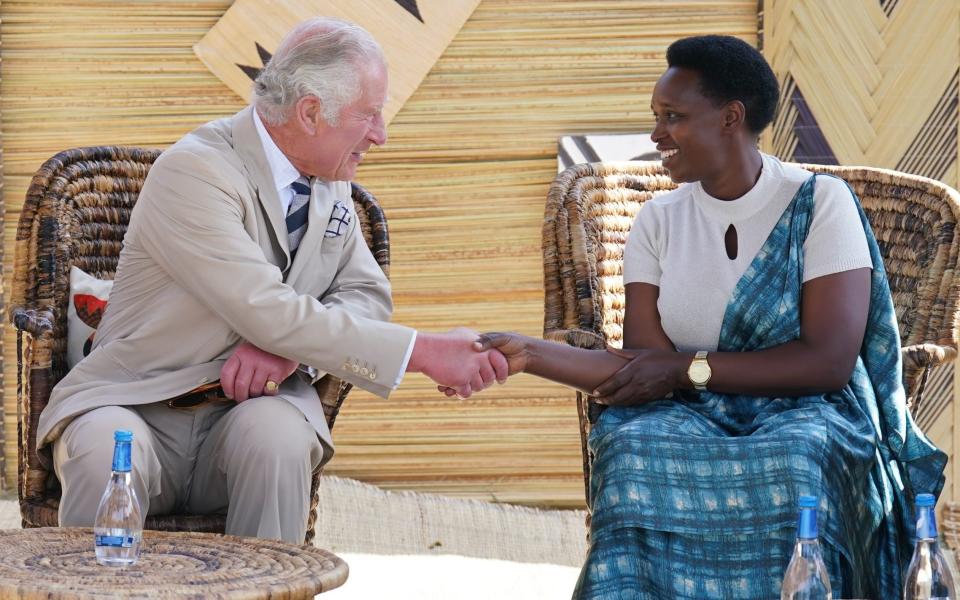
The Prince also visited the Mbyo reconciliation village, an hour’s drive from Kigali, where 384 Tutsis and Hutus live side by side.
After listening intently to testimony from both a survivor, whose entire family was killed, and a perpetrator who killed Tutsis at roadblocks, he hailed it a “wonderful example to the rest of the world”.
He said he was “full of admiration” that residents had managed to overcome the past, adding: “It must have been so difficult to be able to forgive these quite awful horrors.”
A Clarence House spokesman said: “Both the Prince and the Duchess were struck how important it is never to forget the horrors of the past, but also were deeply moved as they listened to people who have found ways of living with and even forgiving the most appalling crimes.”


